Breed-complextachycardiën
Bij een breedcomplextachycardie (hartslag > 100/min, QRS breder dan 0.12 seconde) is er het belangrijk een onderscheid te maken tussen een supraventriculaire tachycardie met aberante geleiding en een ventrikeltachycardie. Er zijn meerdere algoritmes om dit onderscheid te maken.
Algoritme van de ACC ACC
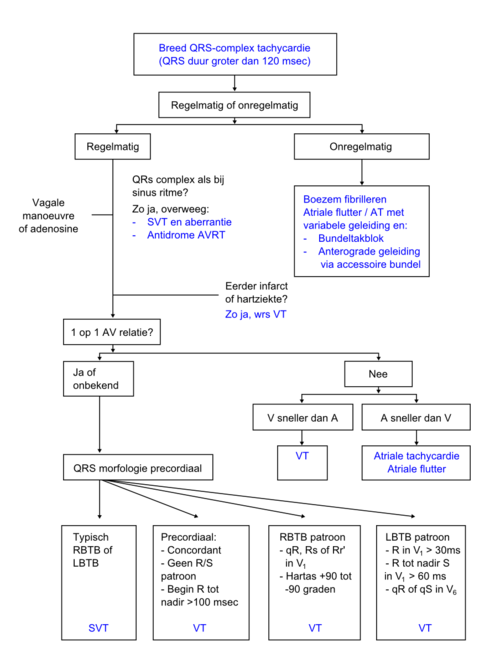
Brugada algoritme Brug1
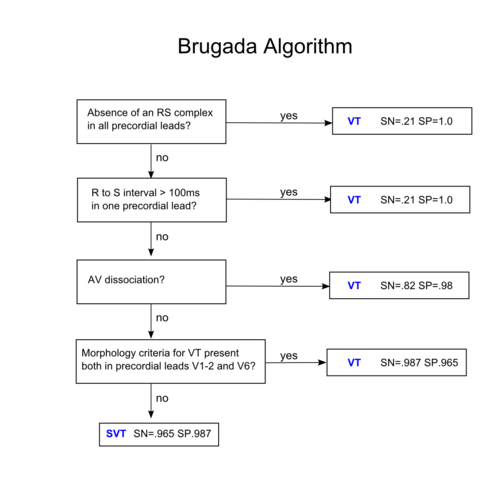
| Morfologische criteria (als bovenstaande criteria geen uitkomst bieden) | ||
|---|---|---|
| LBTB patroon | ||
| Initiële R breder dan 40ms? | Ja => VT |  |
| Slurred of notched neergaand been van S golf in afleiding V1 of V2 | Ja => VT | |
| Begin Q tot nadir QS >60 ms in V1 of V2? | Ja => VT | LR >50:1 |
| Q of QS in V6? | Ja => VT | LR >50:1 |
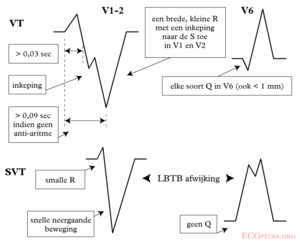 | ||
| RBTB patroon | ||
| Monofasische R of qR in V1? | Ja => VT | |
| R hoger dan R' (rabbit-ear sign)? | Ja => VT | LR >50:1 |
| rS in V6? | Ja => VT | LR >50:1 |
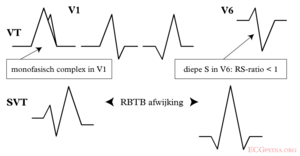 | ||
Vereckei algoritme Vereckei
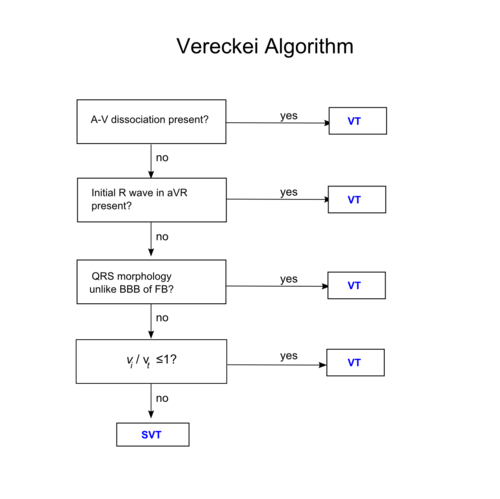
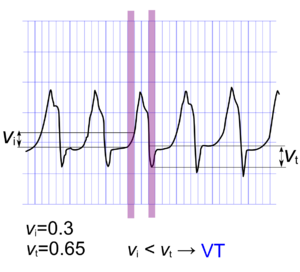
Voorbeelden
-
Breedcomplextachycardie. Geen AV dissociatie. RBTB. Lijkt op complex bij SR van zelfde patient. Conclusie: SVT met aberrantie
-
ECG van zelfde patient als eerste voorbeeld, maar nu in sinusritme. Het QRS complex is nauwelijks gewijzigd
-
Breedcomplextachycardie. LBTB configuratie. Afwezigheid RS over voorwand. AV-dissociatie: de pijlen wijzen de p-toppen aan. Conclusie: ventrikeltachycardie
-
Breedcomplextachycardie. LBTB configuratie. Afwezigheid RS over vorwand. AV-dissociatie: de pijlen wijzen de p-toppen aan. Conclusie: ventrikeltachycardie
Referenties
<biblio>
- ACC pmid=14563598
- Brug1 pmid=2022022
- Vereckei pmid=17272358
- Brugada2 pmid=20215043
</biblio>

